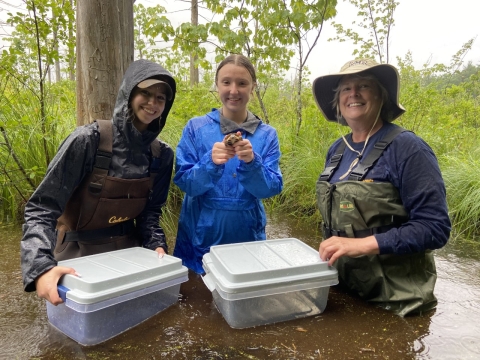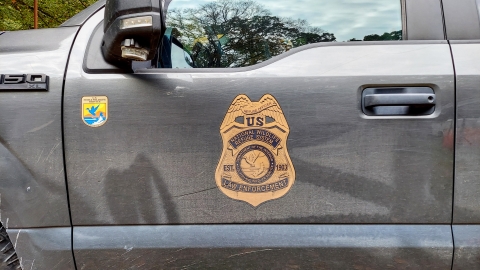Management and Conservation
Refuges deploy a host of scientifically sound management tools to address biological challenges. These tools span active water management to wilderness character monitoring, all aimed at ensuring a balanced conservation approach to benefit both wildlife and people. At this field station our conservation toolbox includes:
- Planning – Comprehensive Conservation Plan
- Compatibility Determination
- Cultural Resources
- Education & Outreach
- Invasive Species
- Inventory and Monitoring
- Law Enforcement
- Recreation Management
- Species Research
Our Projects and Research
Most research, projects, and initiatives on the refuges comprising the Eastern Massachusetts National Wildlife Refuge Complex examine management of avian resources, various public uses, rare, threatened, or endangered species and habitats, and invasive species invasive species
An invasive species is any plant or animal that has spread or been introduced into a new area where they are, or could, cause harm to the environment, economy, or human, animal, or plant health. Their unwelcome presence can destroy ecosystems and cost millions of dollars.
Learn more about invasive species control.
Law Enforcement
Guided by the founding principles of the National Wildlife Refuge System, and the mission of the U.S. Fish & Wildlife Service, we shall protect wildlife and habitat and make refuges safe places for staff and visitors, we shall conserve America’s natural resources for now and in the future, and we shall exemplify excellence in public service to all.
Eastern Massachusetts National Wildlife Refuge Complex law enforcement is designed to help visitors enjoy the refuge and understand and obey wildlife protection laws.
Laws and Regulations
Various laws and regulations define the authority and responsibility for the Fish and Wildlife Service to conserve and preserve species, and habitats on federal land.



